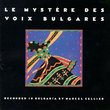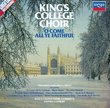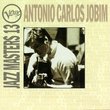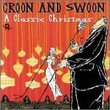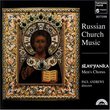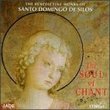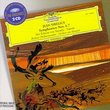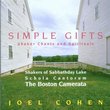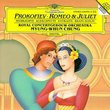| All Artists: Von Wolkenstein, Sequentia Title: Ballads & Songs Members Wishing: 0 Total Copies: 0 Label: RCA Release Date: 2/1/1994 Genres: Pop, Classical Styles: Vocal Pop, Historical Periods, Early Music Number of Discs: 1 SwapaCD Credits: 1 UPC: 054727730221 |
Search - Von Wolkenstein, Sequentia :: Ballads & Songs
CD DetailsSimilarly Requested CDs |
CD ReviewsThis Poet Was a Man's Man Giordano Bruno | Wherever I am, I am. | 03/24/2008 (5 out of 5 stars) "No one ever mistook Oswald von Wolkenstein for effete, languid, or timid. For a minor knight from a beautiful but remote valley of Tyrol, his life is remarkably well documented, and much of it is recounted in his sharp-witted autobigraphical poems. He was not a man to make fun of, but he was also not a man to hold back from making fun of himself. The castle where he was born in 1376, at Burg Schoeneck, is still standing; I lived for a year in the next castle along the ridge, and I often sat on the parapets puzzling over Oswald's difficult Middle German dialect, trying to make mental contact with a life so remote in "conforts" yet so close in sentiments to my own. There are eight of his poems on this CD, all sung to monodic melodies that Wolkenstein notated or at least might have recognized, with accompaniment on troubadour harp and fiddle. Wolkenstein was not a rustic; he was a traveler of epic endurance, a soldier, merchant, rebel, and well acquainted with the polyphonic music of western Europe. But he was most of all a great poet, perhaps the greatest German poet of the Middle Ages, and these poems must be enjoyed as such. The music is pleasant and hypnotic in itself, but nothing spectacular. To enjoy it, you'll have to put some effort into the texts. Reading the poems in English gives you a narrative but little sense of Wolkenstein's sophisticated poetic craft. The stanza forms are intricate, with double internal rhymes and strict alliterations. There are untranslatable allusions and puns. The poem on the third track "Do fraig amors" is composed in seven languages, all made to rhyme. Two of the poems are based on the Provencal form of a lament, but the lamenting is personal and comical, including some timeless jokes about his overbearing wife. The last poem on the CD, Vil lieber gruesse suesse, is a song of springtime beauty and of that which a young knight's fancy turns to. You'll get as much enjoyment from this performance as you yourself put into it. Here's what to do: A. Listen to only one poem in a session. 2. Read the English translation first. (Or the French or the German) 3. Read the original Middle German, using any sort of pronunciation you choose, modern German, Chaucerian, pig Latin, whatever. Get a taste of the music of the words. If you speak some German, Dutch, or Swedish, it will naturally be easier. 4. Put the booklet down and just listen to the track on the CD, and try to hear the meanings you know are there just from the poet-singer's inflections. The accompanying notes about Wolkestein are ample and interesting. Ben Bagby and Barbara Thornton, of Sequentia, have made the rediscovery and interpretation of Medieval music their lifes' work, and the results are fascinating. No other Medieaval music consort approaches them for authenticity or for vistuosity of performance. On this disk they are joined by two players of the Medieval bowed string instrument called Fiedel in Middle German, vielle in French, fiddle in English. This chunky four or five stringed instrument was indeed the ancestor of the violin, but it has its own lovely sound. Bowing technique allowed for continuous double and triple stops, sometimes creating a drone effect. The bow strings were occasionally crossed over-and-under the strings. There was a virtuousity even of such an ancient instrument, and Elizabeth Gaver displays her skill in several beautiful prelude-like intros to poems and in a rollicking instrumental improvisation. Unique and fascinating for lovers of language as music in itself." May not be true Lieder, but great old music nonetheless. Buy B. Marold | Bethlehem, PA United States | 12/14/2005 (5 out of 5 stars) "This recording of vocal and instrumental works by Tyrolean, Oswald Von Wolkenstein adds a fouth genre to my appreciation of old European music. The first three are ligurgical music, dances in masques, and songs recounting stories from the bible, performed in monastaries and by travelling artists.
My music history is a bit weak on this point, but I suspect calling these 15th century works 'Lieder' may be stretching the term a bit. My paradigm was always a single voice singing German and accompanied by a modern piano. On the other hand, these are still single voices in 'middle German', accompanied by a harp, a violin, or both. Like most early music, this recording has the sound of having been recorded in a very large open space as one may find in a cathedral, even though this is not religious music. Oddly, although the violin is the primary bowed instrument on these tracks, the instrument sounds remarkably like a hurdy gurdy. And, from the photograph, I suspect the instrument was a lot more primitive than something made by Strativarius. Either it was played to sound like a drone instrument or it had drone strings. All in all, far more rewarding than your run of the mill liturgical fragments, especially as it seems these works were found complete with both original words and music. Highly recommended." |


